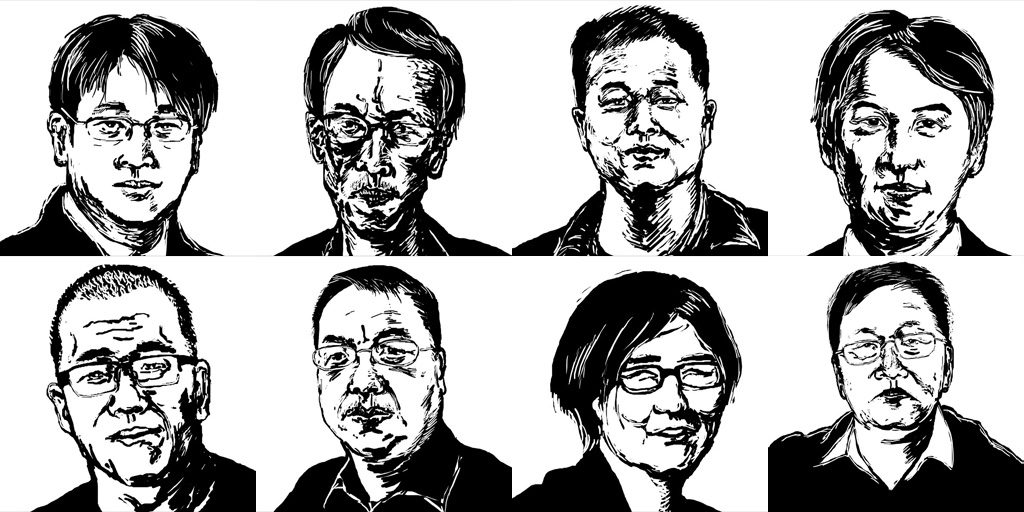In recent years, human rights defenders in China have faced increasing intimidation, harassment, arbitrary detention and attacks.
China represses severely a range of human rights, including the rights to:
- freedom of expression;
- seek, receive and impart information;
- freedom of association and peaceful assembly;
- freedom of thought, conscience, religion and belief;
- fair trial and freedom from arbitrary detention, torture and other ill-treatment; and
- equality and non-discrimination.
The government has enacted several national security laws that present serious threats to the protection of human rights and HRDs. Police often arbitrarily detain HRDs outside formal detention facilities, sometimes without access to a lawyer for long periods, thereby exposing them to the risk of torture and other ill-treatment. Human rights lawyers, representatives of religious minorities, political dissidents, online activists and advocates for disadvantaged social groups remain particularly at risk, along with HRDs active in remote and minority regions such as the Xinjiang Uighur Autonomous Region and Tibet.
Over the past decade, EU-China relations have grown in importance, progressing from a primarily trade-oriented relationship towards one covering a broad spectrum of issues, reflecting the EU’s growing foreign policy role and China’s increased financial power and global influence.
The EU and China have a long and fraught relationship as regards human rights, plagued by many tensions around the annual EU-China human rights dialogue; conflicting interests leading to divisions among EU member states; proactive Chinese efforts to divide and counter EU efforts; and persistent challenges in mainstreaming EU engagement on human rights, including if and how individual cases are raised at summits and high-level visits.
However, in recent years, the EU has developed relatively strong public positions on human rights in China. Together with existing human rights policies of the EU, including the HRD Guidelines, this positioning represents a solid point of departure for more strategic and effective engagement on human rights in China. Now, as always, the challenge is to deliver on these commitments, in particular on the defence of the universality, interdependence and indivisibility of human rights; working towards making an impact on individual cases; and maintaining EU member state unity and consistent mainstreaming of EU human rights concerns across a wide range of exchanges with China.
What challenges do human rights defenders face?
Conclusions
Given the complex relations with vast interests at stake, along with the many challenges of engaging China on human rights, the EU has made significant headway with good and even innovative practices in using public diplomacy, exploring how to put mainstreaming into practice and seeking alternate courses of meaningful practical action for HRDs (such as outreach through consulates). All of these could be useful elsewhere in EU human rights work globally.
At the same time, the experience in China opens up areas for further consideration:
- How to act strategically for the release of arbitrarily detained HRDs?
- How to ensure better follow up on human rights concerns and individual cases through practical action, political intervention and sustained follow up, once these are raised through public diplomacy?
- How to step up engagement on the restrictive legal environment in China, including through more visible engagement on new laws, more flexible funding to HRDs and facilitation of safe contacts with international human rights bodies?
- How to engage with Chinese challenges of human rights norms at the international and multilateral levels?
- How to promote wider engagement of Chinese HRDs with international human rights mechanisms in a context of increasing reprisals against those who do so?
- How best to make a positive out of the potential liability of EU disunity, exploring how to strategically use both bilateral and multilateral actions by EU and member states?
Recommendations
- Mainstream human rights engagement throughout all relations with China, including in political, legal, security and trade-related exchanges – establishing concrete mechanisms to mainstream human rights messages in all EU exchanges with China, and linking up meaningful work being done across the European institutions.
- Adopt a more ambitious approach to EU divergences, exploring how joint EU actions can best be used strategically in coordination with bilateral actions by EU member states.
- Develop innovative approaches to trial observation. Broaden the scope of trial observation efforts in China to attend those dealing with charges against NGOs. Arrange briefings with journalists who may have better access to trials. Explore alternative ways of supporting HRDs on trial. Adopt a consistent strategy of public communication when access to trial observation is refused. Ensure the full consent of the people involved, and that all actions are undertaken based on an assessment of potential risks, while maintaining a proactive approach to trial observation.
- Counter isolation of Chinese HRDs by providing information on the EU Guidelines on HRDs as well as on global human rights rules and networks in Mandarin and other languages spoken in China. Promote networks and exchange of information between Chinese HRDs based in different regions, and between them and their international counterparts. Provide scholarships to HRDs to attend European universities to build their capacities and enhance their networks. Develop safeguards and consistent strategies for communication about reprisals against HRDs engaging with international human rights mechanisms.
- Work closely with the UN system. Ensure HRDs are aware of the mechanisms they can address at the multilateral level and support them in doing so safely. Facilitate communications between and contribution to, relevant Special Procedures.
- Support family members of targeted HRDs. Protect and financially support the families of targeted individuals, who are often used as leverage on HRDs.
- Develop strategies for follow up on public statements with practical actions (such as prison visits, support to lawyers or families) and political engagement (such as reiterating individual cases at summits or high-level meetings).


